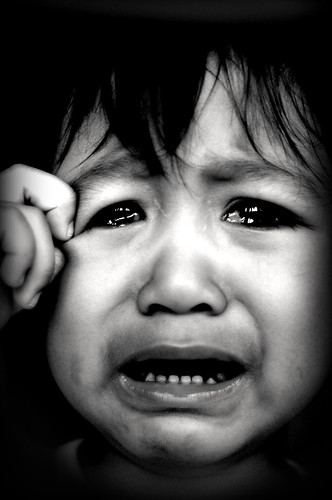 When researchers at the Washington University School of Medicine published the first longitudinal study of Major Depressive Disorder (MDD) in preschool children, it came as a surprise to many that young children even get depressed. Most people were unaware that MDD had already been found to be as common among preschoolers as among school-age children (approx. 2%).
When researchers at the Washington University School of Medicine published the first longitudinal study of Major Depressive Disorder (MDD) in preschool children, it came as a surprise to many that young children even get depressed. Most people were unaware that MDD had already been found to be as common among preschoolers as among school-age children (approx. 2%).The significance of the longitudinal study conducted by Dr. Luby and her colleagues is their evidence that depression in preschoolers is similar to that of school-age children. It's already known that an episode of severe depression in childhood often leads to more episodes as children get older. The researchers examined whether the same was true for preschoolers, that is, whether children depressed at the beginning of the study would be depressed two years later.
They also examined the risk factors that predicted depression both at baseline and at follow-up. Among school-age children, the strongest predictor of depression is a family history of depression. Both genetics and a depressed mother independently contribute to childhood depression. Stressful or traumatic events also predict depression, especially, in combination with a family history.
At the beginning of this study, depressed children were more likely to have mothers with a history of depression compared to children with other psychiatric disorders or no disorder. They also had experienced more traumatic events than the other groups. The types of events included "death of a parent, experience of physical or sexual abuse, and removal from one's home."
At follow-up, the strongest predictor of chronic depression was earlier depression. Children who were diagnosed with MDD at baseline were 4 times as likely to have MDD 2 years later. The second most powerful predictor was a family history of depression. Traumatic events contributed to a lesser degree.
Unfortunately, the popular press has reacted with the usual concerns about stigma and psychiatric medication. As Jennifer Gibson states in How Young is Too Young to Diagnose Depression? | Brain Blogger :
Experts are wary of labeling preschool-aged children with depression, since the diagnostic tools for this age group are not well established. However, early identification of depression may save a child from a lifetime of social and emotional consequences. Many adolescents and adults present to health care providers for mental health treatment, indicating that their symptoms started at an early age, and most adults with depression did, in fact, meet diagnostic criteria for depression in childhood. However, if children are labeled as “depressed” so early in life, are they set up for a lifetime of medications and treatments and stigmatization?This ignores the opportunity for prevention by treating children who have experienced stressful or traumatic events. Most child clinicians are aware that the death of close relatives, prolonged separations from caretakers, separation and divorce of parents, and chronic abuse or neglect can lead to depression in children. I believe the results of this study provide further support for the early treatment of childhood trauma.
The treatment of choice for preschoolers should be psychotherapy. Given that research has found psychotherapy and medication equally effective at treating depression in adolescents and adults, there is no reason to assume it would be different for young children. For safety reasons, I believe anti-depressant medication should be considered only for children with severe or chronic depression that has not responded to psychotherapy.
For those without access to the full article, see Dr. Nestor-Duran's review Depression in preschool children: not a temporary phase. - Child Psychology Research Blog.
--
This post was featured in Grand Rounds, Vol. 6, No. 13
sadsad
ReplyDelete